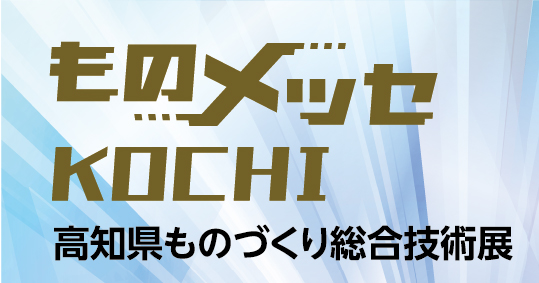Merging of software and hardware --We are a group of systems engineers who specialize in control systems
Pacific Software Development Co., Ltd.

Software Danchi, 105-22 Hongu-cho
Kochi City, Kochi, JAPAN 780-0945
Tel 088-850-0501
Fax 088-850-0570
Founded: September 1972
Homepage: http://www.pacificsoftware.co.jp/
<Products>
Development of control systems
Manufacture and sale of "SeaVision" ultrasonic sounding system
Development and manufacture of mechatronics and computerized control system equipment
Management and operation of "FishonShikoku" fishing information site
First software company from Shikoku
(Photo: Front view of the head office)
We are a business enterprise that has specialized in developing computerized control systems since being founded in 1972.
Our founder, Masahiko Nakatani, is also the president. He started the business in his hometown of Kochi at the age of 27 after working for a software company in Osaka for five years. Most people had no idea of what a computer was at that time. Not just in Kochi, but even throughout Shikoku, there were no companies that had software as their main line of business.
"I told some of my acquaintances of my plan to start a business in Kochi, and almost all of them were against the idea. It was starting from nothing," Nakatani says when looking back at that time. Hardly anybody knew the word "software" in Kochi Prefecture. Business registration forms submitted to the Regional Legal Affairs Bureau were returned full of labels with questions written on them.
"It took us almost two months for the forms to be accepted after resubmitting them many times," Nakatani says, remembering that he was unsure of the terminology needed to describe the purpose of the business.
It was originally stated as "Development and sale of computer software." The bureau replied requesting him to translate it into Japanese because they did not understand what it meant. Now it wouldn't be a problem, but people did not understand the meaning then. They even said there was no precedent for the registration for a business with such a purpose to be accepted. After putting a lot of thought on the terminology, he resubmitted the registration form stating the purpose as, "Development and sale of a technique to employ the use of an electronic data processing machine," Nakatani says with a bitter smile.
Overcoming initial difficulties

He made the initial sales calls with brand new business cards. There were no businesses in Kochi Prefecture at that time using computers. He even had a difficult time explaining what the company name meant because people did not know the meaning of software. In the 1970s, there were no personal computers or even word processors yet. Nor, needless to say, did the Internet exist. People had images of computers as rows of large machines used only by special organizations in big cities. It was, at that time, beyond people's imagination that individuals or private businesses in small cities would have computers. "We were mistaken for a futon business or cleaning shop because people did knot know the word software," Nakatani says, continuing the story of the beginning of the business with more bitter smiles on his face.
A turning point came when he received a phone call from an acquaintance working at the software company Nakatani used to work for in Osaka. It was an order for software to be used in mini-computers for a company in Tokushima Prefecture. "People-to-people networking is very important. I even got a job from a friend from high school whom I bumped into one day. Life changes depending on who you know," Nakatani says with some emotion. Office computers gradually came to be introduced in business, and his company became the first sales agent for them in Kochi. He also started to give lectures regarding software development. Pacific Software Development had become a pioneer in the computer era in Kochi Prefecture.
(Photo: President Masahiko Nakatani)
Main businesses


(Left Photo: Three-dimensional image of a seabed configuration taken by the SeaVision ultrasonic sounding system.)
(Right Photo: Display of the SeaVision Navigator, a dredge work management system)
"The 'core competence' of our company is computerized control systems. We have a lot of accumulated knowledge and technology in this field," Nakatani says confidently. While the company is developing new businesses in various fields based on its core control system technology, the firm's main businesses are development of mechatronics systems, factory and distribution automation systems, distribution payment systems, and electronic communication systems.
We are putting more effort into the development and sale of the "SeaVision" ultrasonic sounding system. Conventional ultrasonic sounding systems are vulnerable to murky water, making it difficult for them to be used at offshore engineering sites where the water often gets thick and muddy. We have developed a new system to measure depth quickly, even at the bottom of the sea where the water is full of sediment, by adding computer technology to that of ultrasonic sounding systems about which we already had knowledge, and made it into a product. It took us five years of research and development. We put the system on the market in March 1997, and it now has the No. 1 market share.
"Our 'SeaVision' system, which we developed using a unique method of analyzing ultrasonic echoes, is a revolutionary ultrasonic sounding system in the offshore engineering field. We have established solid know-how by mastering ultrasonic transmitting and receiving circuits, so we are the winner in this field," Nakatani says forcefully, while holding a 1/10 scale model of a "SeaVision" system in the main office.


(Photo: SeaVision SV-501A)
IT and local industries of Kochi Prefecture
We also develop products used in primary industry, keeping the fusion of software and hardware as our key technology concept.

<Itadori Japanese knotweed peeling machine>
Itadori Japanese knotweed is a very well known mountain vegetable in Kochi Prefecture, but not in other parts of Japan. We have developed and manufactured an automatic peeling machine for itadori so more products made of the vegetable can be produced and distributed nationwide. This is one example of how the use of information technology can benefit agriculture.

<Kouzo bark peeling machine>
Kouzo is one of the materials used in making Tosa Washi paper. It is a very important resource to help maintain the traditional culture of Kochi Prefecture. The peeling machine works at high speed to separate the bark from the wood just by placing bunches of steamed kouzo on top of the insertion slot. The machine is a variation of the itadori peeling machine, and is attracting attention as a device that can help promote local industries.

<Log measuring system>
Kochi Prefecture is No. 1 in Japan for its forest coverage rate. There are a lot of challenging issues involved in growing a forest or doing cutting work because there are a lot of large areas with steep mountains. Generally speaking, logs are measured at the lumber market, but there is a growing trend toward doing it at the logging site. We have developed a type of measuring equipment that uses image processing technology, enabling it to be easily used and transported.
Company name targets globalization

"Our company was started with only two people, and has grown to 70 employees after 40 years. When I started the company, I was 27 years old and did not have a great ambition to be an entrepreneur for a start-up business. I only wanted to create a place to work by myself for myself. That was the only idea I had then. But now I see that I have become engaged with the lives of over150 people, including those who no longer work for us," Nakatani says emotionally about the company's history over the past 41 years.
When asked about the name of the company, Nakatani says:
"I wanted the company to have a name which could be used no matter how big it grew. Also, it is much easier to do business across borders in the software field compared to other industries, so I did not want a name with geographical limitations. Then I thought of the word 'Pacific'. The Pacific Ocean suggests movement from Kochi to the world, and the other meaning was to indicate a frontier spirit like the Union Pacific Railroad, the first transcontinental railroad from the East Coast to the West Coast of North America. But even having the word 'Pacific' before 'software,' the area of business specialty, the name was not yet complete. There was something lacking. I had a vision for the company having a research and development center as it grew, and the name 'Pacific Software' was not enough to reflect that vision. I added the word 'Development' to symbolize my persistent desire to engage in research and development, and the company name was finally born."
(Photo: Entrance hall of the head office)
Thinking of the future of Kochi Prefecture

"Most of our employees are from Kochi Prefecture. I want them to be happy about their decision to work for a company with ties to the local community, even if they are not directly involved in local activities, just by knowing that the company does," indicating Nakatani's love for Kochi as the leader of a company in Kochi Prefecture. He is greatly concerned about the outflow of people from Kochi.
"Up until a few years ago, the population of Kochi was in the 800,000s. Now it is less than 750,000. We should have a crisis mentality about Kochi being a prefecture of decreasing population. We should discuss the issue of job opportunity as a community problem for the young people of Kochi, to get them to stay instead of seeking work in big cities. For example, Kochi has the No. l forest coverage rate in Japan, at about 84%. Kochi has a local character, with its fortune being in its mountains. It is important to develop a work environment connected to the local mountains and industries," Nakatani continues, also mentioning that he educates his employees by lecturing to them on the importance of carrying out research and development. "It is important to constantly challenge new subjects. If no one in the company is trying to do something new, we have a crisis. For example, if you read books for 10 minutes before going to sleep every night, how many books would you read in 10 years? The difference with someone who does not read will grow larger as time passes. We want to remain the company that always challenges itself and continues to engage in research and development."
Lastly, he said strongly: "Do something for a long time without giving up. Then you will have know-how in that particular thing that no one else has. However, you should always know your limits, too. And never forget about the people who supported you in many ways. Always remain grateful to those people. You are where you are because of them."





























